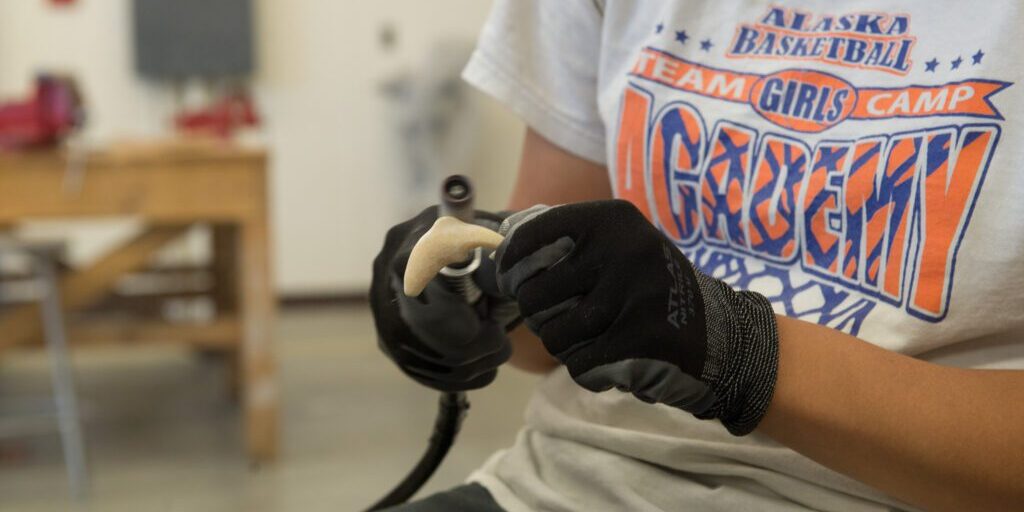A bill that protects walrus ivory from state bans passed the Science, Commerce, and Transportation Committee in Washington DC last month.
The recently-approved Empowering Rural Economies Through Alaska Native Sustainable Arts and Handicrafts Act, proposed by U.S. Senator Dan Sullivan, would prevent states from banning walrus ivory carved by Alaska Natives as well as fossilized ivory products, such as extinct mammoth.
Under the Marine Mammal Protection Act of 1971, it is legal for Alaska Natives to harvest and carve walrus ivory in a sustainable manner. However, a 2016 regulation issued by the U.S. Fish and Wildlife Service banned most commercial and non-commercial ivory from African elephants to discourage illegal poaching. Ten states, including the District of Columbia, have since enacted broader bans on ivory sales that include walrus, mammoth, and fossilized ivory.
During the committee hearing on September 16, Sullivan emphasized the impact these bans have on Alaska native businesses.
“These broad state bans in certain states have inadvertently created confusion and a negative stigma on products the Alaska Native community has used for thousands of years for survival and subsistence, as well as key sources of cultural expression… My bill would protect this key source of economic opportunity and cultural identity for Alaska natives and Alaskans.”
– Dan Sullivan
The bill has critics who argue that the legislation would make the sale of illegal elephant ivory much easier.
However, Vera Metcalf, the director of the Eskimo Walrus Commission, believes that the legislation is a step in the right direction and may help legislators understand the significance of walrus ivory.
“We are excited about what is happening because walrus ivory is different and of course we don’t support poaching of elephant ivory … I think educating those states that have banned ivory that includes walrus, it’s a matter of educating them about the resource and its cultural value to our communities.”
– Vera Metcalf
It is unknown when this bill would become a law. It now moves onto Congress for final passage.
Image at top: Ivory shaping her fish carving in walrus ivory with a dremel. Photo: Mitch Borden, KNOM file.




